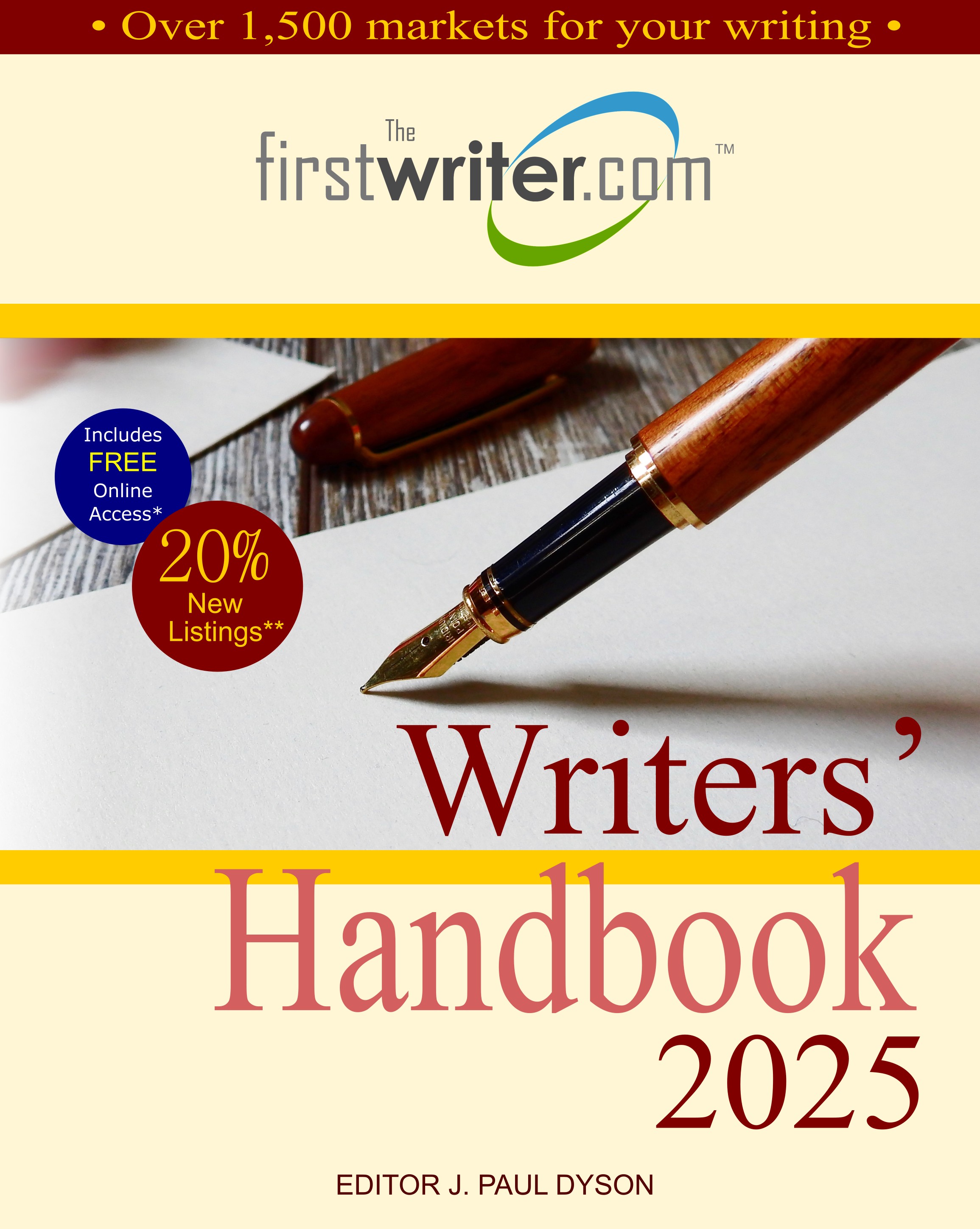
Writers' Newsletter
Issue #260
November 2024
|
Suspense (A state or condition of mental uncertainty or excitement…)

By G. Miki Hayden
Instructor at Writer's Digest University online and private writing coach
firstwriter.com – Thursday October 31, 2024
Suspense, as a noun, may sound vague, but as an artful expression in film, on stage, or in novels, suspense is a fairly specific ingredient. Suspense can dominate the genre being presented throughout, or suspense can come to the fore for a scene or a moment at the height of the story, and then resolve. Suspense can be sprinkled in like a condiment, or it can relentlessly keep an audience on the edge of their seats for the entire piece.
No matter how suspense is used, in a mystery, ghost or horror story, in an adventure, or as part of a futuristic end-of-the-world drama, this chilling emotion will pay off its creator well, in dollars and in fame. However, real suspense can be hard to produce.
On stage or in film, suspense can be urged along by music, spooky shadows on the set, or an actor’s makeup; yet on the page, suspense can only be produced by… words. But ,as we writers all must know, the word is mightier than any other means of affecting human emotion. And thus words will certainly do.
So, how do we keep the reader in a state of mental uncertainty or excitement? By sleight of hand, of course, by suggestion, by both the usual means and the unusual.
|
|
|
|
|
|
|
|
|
News |
Some of this month's news for writers from around the web.
Artificial intelligence is better at writing poems than William Shakespeare, a bizarre new study has found

thesun.co.uk – Friday November 15, 2024
PEOPLE prefer poems written by artificial intelligence to works by famous writers like Shakespeare and Lord Byron, a study has found.
Readers rated virtual verse as more emotional, creative and beautiful — until they found it was churned out by a bot.
Scientists think rhymes written by algorithms use simpler language, so people enjoy them more than complicated old classics.
They tested the effects on 2,300 people who were not poetry experts — and found readers could not tell the difference.
Writing in the journal Scientific Reports, Pittsburgh University’s Brian Porter said: “Like AI-generated paintings and faces, AI poems are now ‘more human than human’.
“We find people rate AI-generated poems more highly. However, they evaluate them more negatively when told the poem is AI generated.”
|
Elements of Style: How You Write What You Write: Creative Writing Workshop with Jennifer Landretti
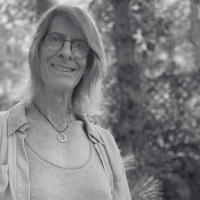
orionmagazine.org – Thursday November 14, 2024
Style, one could say, is how you write what you write. It’s the discrete way that any sort of writing unites the most common elements of the craft: word choice, sentence structure, the organization and order of whatever the writer is expressing. While an evocative style tempts us to imitation, the results are rarely anything more than a self-conscious study on the path to developing our own authentic style. All accomplished styles seem to hide their gifts in the open. They are bewitchingly sly— “insincere” Oscar Wilde would say—often multivalent, always with an eye toward what they’ve left out. Skillful stylists such as Elizabeth Strout, Mary Oliver, or Wendell Berry seem to produce without effort the singular way that a story, poem, or essay should unfold, while the voices that grace their pages—that of a character or narrator—seem to materialize in our imaginations as a complete person with spiritual heft, a thriving sensibility, arrested there in art and shimmering for as long as the words exist. At its finest, style is a sort of gestalt of soul.
So, how do we understand and craft our own styles? We’ll explore that question. We’ll do so by working primarily with the personal essay while dipping periodically into poetry. We’ll examine the effects of word choice and sentence structure, as well as consider some of the organizational strategies that essayists use. Always, we’ll keep alive the question of style: What’s yours? How so? Why so? We’ll sample a range of writers, from Joan Didion and Elizabeth Bishop to Vladimir Nabokov, John Updike, and Patricia Hampl, distinguished stylists all. Rather than map out a set curriculum, I’ll use a more organic approach: beyond the first couple of classes, I’ll adapt the course to the direction that class members seem most interested in going. Whatever direction we do go, we’ll undertake a variety of eye-opening, generative exercises and, I hope, enjoy several lively discussions, each centered on a particular aspect of style. This course is open to writers of all skill levels.
Duration: This online course meets from January 12th – March 2nd over eight consecutive Sundays from 6-8 pm ET (5-7 CT, 4-6 MT, 3-5 PT).
Application window: November 1-15
International Copyright RegistrationRegister your copyright online for instant copyright protection in more than 160 different countries worldwide. |
New Writing North announces winter programme

atvtoday.co.uk – Thursday November 14, 2024
New Writing North has announced its winter programme, featuring a range of opportunities for aspiring and emerging writers across the region…
The Newcastle-based charity supports the development of professional skills for writers in the north, as well as encouraging writing and reading for pleasure and wellbeing. This winter sees an array of career development opportunities for emerging creatives, including paid work placements in publishing and professional industry workshops.
Anna Disley, Executive Director of Programme and Impact at New Writing North:
“This winter, there’s a chance for emerging creatives to kick-start, explore or develop careers with our far-ranging programme of workshops, courses, awards, and work placements. Our mission is to practically support and nurture talent from across our communities, and remove barriers to transformative creative opportunities. Thanks to our partners and supporters, there are a number of bursaries for career-making prospects on offer too.”
| Click here for the rest of this month's news > |
Writers' Handbook 2025 - Out Now!
|
Listings |
A selection of the new listings added to firstwriter.com this month.
New Publisher Listing: Oh MG Press

firstwriter.com – Tuesday October 29, 2024
Traditional middle grade publisher. No advance. High royalties. Welcomes submissions from authors based in the United States and Canada exclusively. Accepts early middle grade fiction between 16,000 and 30,000 words, and middle grade fiction between 30,000 and 65,000 words. Offers manuscript editing services for a fee.
|
|
|
|
|
|
|
|
New Literary Agent Listing: Abi Fellows

firstwriter.com – Thursday November 14, 2024
For fiction, please send your cover letter, one-page synopsis and first three chapters. For non-fiction, please send a proposal (including overview of book's main idea, information about you the author / why you are the person to write the book, an outline of full book with chapter breakdowns / descriptions and sources, a sample chapter and, if these are available to you, media links, advance praise, comparable titles).
|
|
|
|
|
|
|
|
New Literary Agent Listing: Kait Lee Feldmann
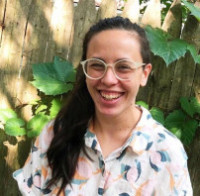
firstwriter.com – Monday November 11, 2024
I represent illustrators and illustrator-authors who are primarily interested in working on picture books and graphic novels. We’d be a good match if you enjoy wholesome chaos. Let’s make books for the kids who get in trouble for their imagination, the next generation of mad scientists, supervillains, and witches at the end of the street.
|
|
|
|
|
|
|
|
| Click here for more of this month's new listings > |
Articles |
Some of this month's articles for writers from around the web.
Fun and useful Christmas gifts for writers
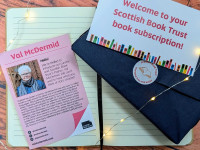
scottishbooktrust.com – Friday November 15, 2024
A few fun ideas for treating the writer in your life this festive season
Picking out Christmas gifts for writers can be tricky. After all, it’s not possible to pop a literary agent or massive book deal under the tree. Luckily, there are lots of other brilliant ideas for making the writer in your life feel special over the holidays. Here are a few of our favourites.
Books about writing
Even the most experienced writers sometimes need a little boost and that’s when books about harnessing creativity or examining the writing process are perfect. We’ve gathered together a few great suggestions in our writing about writing book list. I can also guarantee that if you walk into your local bookshop and ask what the staff recommend, they’ll be able to pick out something inspiring for you.
'Three Women' Writer Lisa Taddeo Offers 3 Writing Insights Every Aspiring TV Writer Should Know

screencraft.org – Thursday November 14, 2024
In ScreenCraft’s new interview with author and showrunner Lisa Taddeo, we dive into the art of adaptation and screenwriting. The writer recently brought her acclaimed book Three Women to the screen, and she has quite a few things to teach us about her process.
The Starz series features Shailene Woodley, Betty Gilpin, DeWanda Wise, and Gabrielle Creevy, and it’s based on Taddeo's bestselling exploration of desire, intimacy, and vulnerability. In the show, an author (Woodley) tells the complex stories of three women as they navigate the highs and lows of love and life.
It’s nonfiction—a true depiction of these women’s relationships and (at times, shocking) sex lives.
First Person: My journey to writing a children’s book
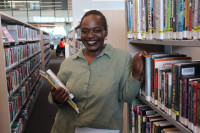
algonquintimes.com – Sunday November 10, 2024
Over seven days, I put my dream of writing a book for kids into motion. The adventure taught me I can do more than I ever thought I could
“No, Auntie! Don’t go!” Kavaiah’s sweet voice stops me just as I’m about to step out the door. She tugs at my hand, holding tight to a new book I bought her, I Am Born to Be Awesome by Mechal Renee Roe. “Just read the book one more time, Auntie, PLEASE!” she begs, her eyes wide. How can I not be compelled to stay?
I smile, settle back onto the couch, and she jumps into my lap, eagerly flipping the book open to the first page. Kavaiah is full of energy when we read. She acts out each line, her four-year-old voice rising and falling with each word, making faces and gestures, soaking in every picture and phrase like it’s her first time hearing them.
I start, “I love the stars,” and she shouts, “I love racing cars!” Then we both chime in, “I am born to be awesome!” She takes her time turning each page, determined to slow me down if I go too fast. With every line, she finds something that resonates, whether it’s her love for bath time or playing in the park. She’s not just listening; she’s living each rhyme, seeing herself in the words and pictures. Each time we reach “I am born to be awesome,” she beams, and I feel it too. Her high-pitched voice makes my heart melt.
I never imagined that enrolling in Algonquin College’s journalism program would lead me to begin to write a children’s book. When the opportunity to write a personal narrative arose, I thought, why not take it further? Why not challenge myself to write a children’s book in seven days? I naively thought it wouldn’t be too hard, after all, it’s a children’s book. How complicated could it be?
Well, as it turns out, it was more challenging than I anticipated.
| Click here for the rest of this month's articles > |
About |
Information about this newsletter and the firstwriter.com site.
Resources for writers
Go to firstwriter.com for the following invaluable resources for writers:
Advertise
To advertise on this newsletter for as little as $30 / £20 click here
Submit
To submit articles, news items, press releases, or any other items of interest to writers, click here
This newsletter has been compiled by firstwriter.com and is protected by copyright. It may not be copied, forwarded, or otherwise distributed in whole or in part without firstwriter.com's written consent.
While every effort is made to ensure that all information contained within this newsletter is accurate, readers are reminded that this information is provided only as a list of potential leads that the reader should follow up with his or her own investigations. Unless otherwise stated, firstwriter.com is not associated with and does not endorse, recommend, or provide any assurances relating to any of the organisations, events, persons or promotions contained within this newsletter, and cannot be held responsible for any loss incurred due to actions taken in relation to information provided. Inclusion does not constitute recommendation.
Please do not reply to this email. The address from which this has been sent is not capable of receiving emails and sending an email to it may cause your subscription to stop. If you have any queries or require any assistance please contact us by going to https://www.firstwriter.com/contactus/
© firstwriter.com 2024


